Experiencing the German energy crisis: these ten questions you should know
 namkoo solar
namkoo solar
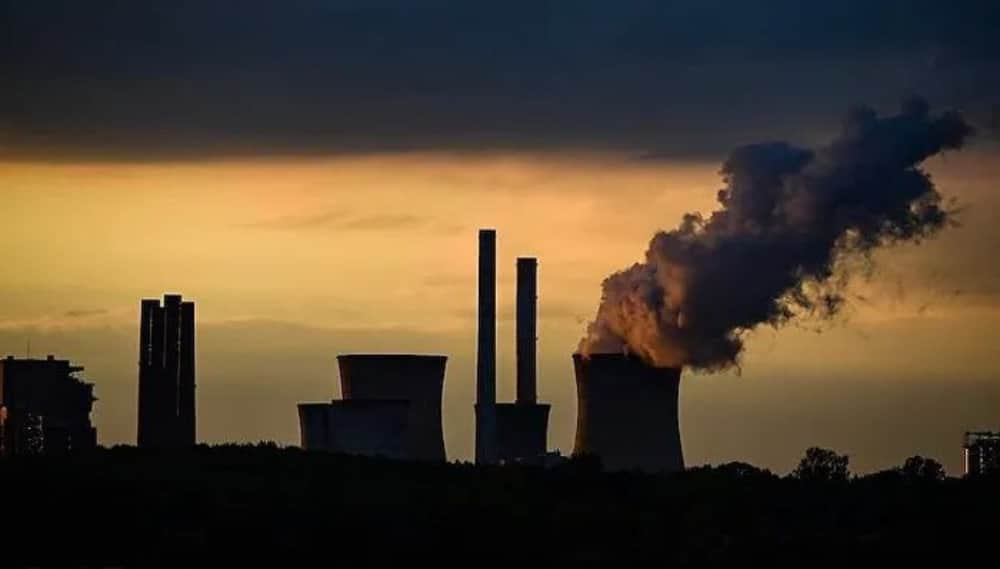
It has been one month since Russia stopped transmitting natural gas to Germany through "Beixi No.1". Under the impact of high energy prices, the industrial and economic foundation of the EU's largest economic country is being shaken, and people are about to usher in a harsh winter.
For a while, reports about the German people's inability to pay their energy bills, the accelerated outflow of German industry and other contents quickly received a lot of attention. However, some of the widely circulated comments are at least different from the current situation around the author.
1、 Why is Germany's natural gas crisis so serious?
The direct cause of Germany's energy crisis is that the source of natural gas supply is too dependent on Russia.
Before the outbreak of the Russian Ukrainian conflict, Russian natural gas had accounted for 37% of Germany's daily imports, and in 2020, which had not been impacted by the rising energy prices and the situation between Russia and Ukraine, Russian natural gas accounted for 55.2% of Germany's annual natural gas use.
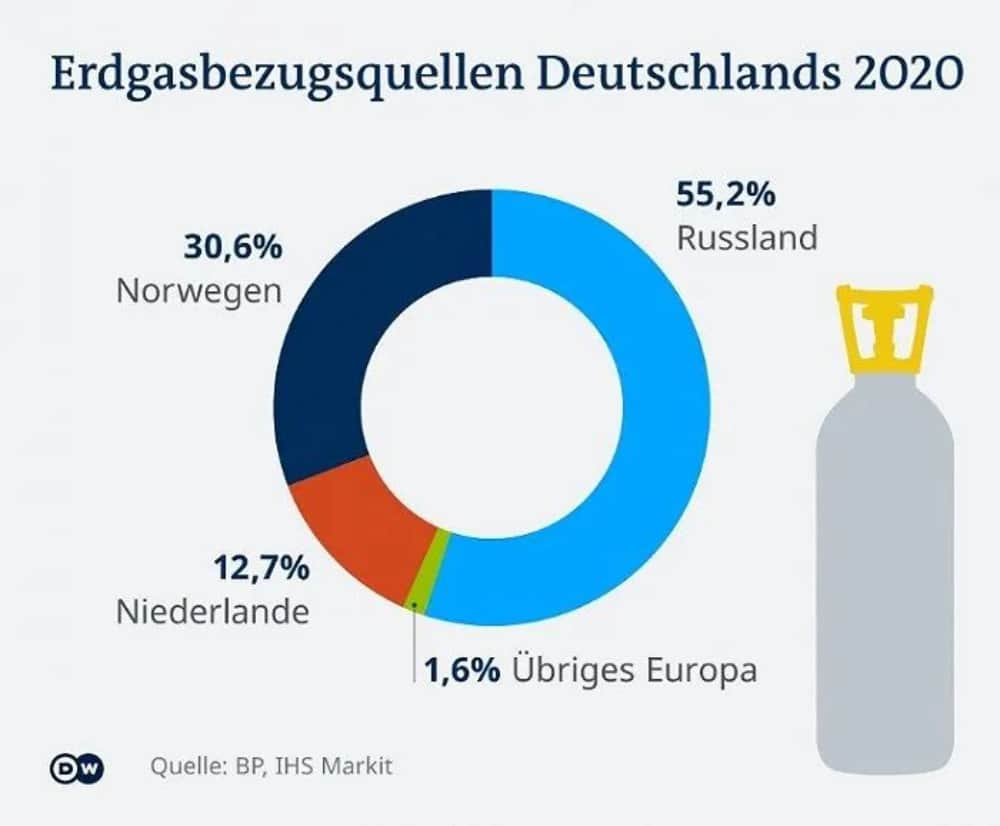
In 2020, Germany's natural gas imports will mainly come from Russia (55.2%), Norway (30.6%) and the Netherlands (12.7%), and less than 1.6% of the natural gas will come from other countries. Its natural gas import structure is extremely single, including liquefied natural gas from the Middle East, North Africa and the United States
The shortsightedness of Germany's energy policy and its geographical location also contributed to the natural gas crisis. On the one hand, the German natural gas pipeline network located in the center of the European continent is connected to the North Sea oil and gas fields through the Netherlands in the west, the West Siberian atmospheric fields through the Yamal pipeline in the east, and the Russian mainland through Beixi No.1 and No.2 in the north. Due to the over developed pipeline network and cheap pipeline gas, the German government never planned to build LNG regasification facilities. Therefore, LNG from the United States and the Middle East cannot be directly transported to Germany, but must be transferred in Poland or France. On the other hand, the Alps in southern Germany blocked the integration of the country's pipeline network and the southern European network, and the relatively rich LNG regasification facilities in southern Europe could not be used by Germany.
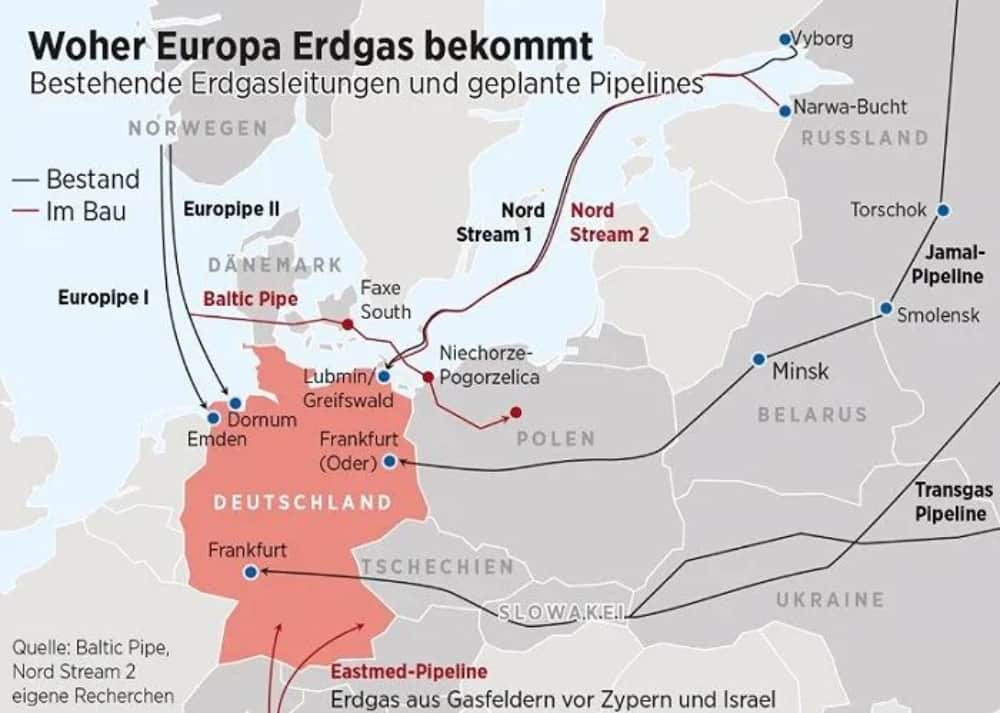
Germany's natural gas pipeline is directly linked to the North Sea oil and gas fields and the West Siberian oil and gas fields, but there is no pipeline going south through the Alps, so the resources of the Eastern Mediterranean and North Africa cannot be used.
2、 Is Germany short of natural gas this winter?
lack.
To be exact, Germany has already stored excess natural gas stocks, but in terms of flow, the daily natural gas import is still lower than the level before the "Beixi No. 1" natural gas pipeline was cut off.
According to the data of the German Network Agency, the natural gas inventory level as of October 7 has exceeded 92%, far higher than about 70% of the inventory in the same period last year, and has exceeded the goal of 85% gas storage by October 1 set by the Berlin government. According to the calculation of the Network Agency, the current inventory is sufficient to ensure that Germany's gas demand in the past three months will be covered when all natural gas imports are interrupted. Based on the consumption in the past heating seasons, the current gas storage is sufficient to ensure the demand by the end of February next year.
Considering that Germany has increased its imports from Norway, the Netherlands and the United States, signed new gas supply agreements with Qatar and Saudi Arabia that came into force in December this year, and that France's gas storage capacity, which has signed energy mutual assistance agreements with Germany, has reached 100%, Germany has no actual risk of gas shortage or gas rationing this winter.
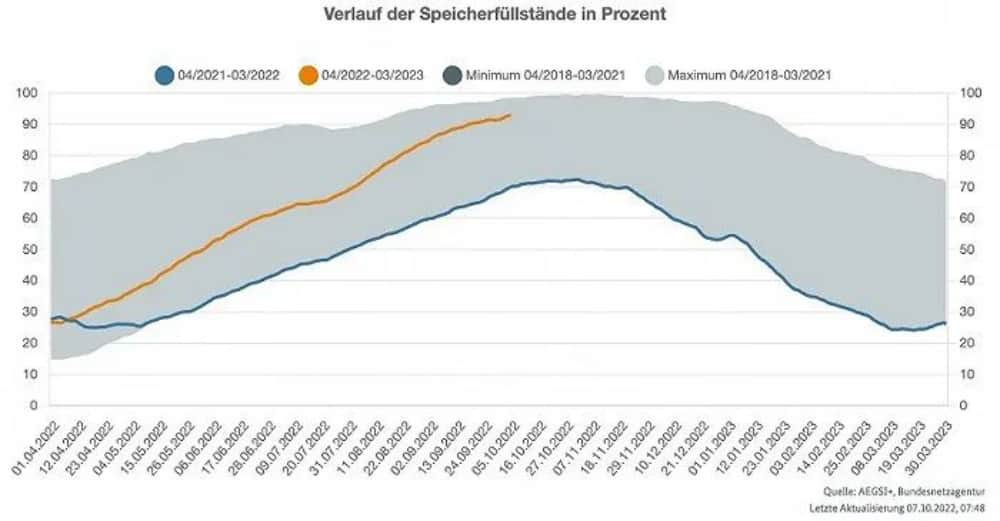
Germany's natural gas inventory level has exceeded 90%.
However, Germany's natural gas supply is still insufficient in the medium and long term. Germany's previous single day natural gas import volume has always been around 4700GWh, of which nearly 1700GWh comes from Russia. Although Norway has increased its natural gas export to Germany from 1100GWh to 1800GWh, it is still unable to fill the huge gap of Russia in the short term. At present, Germany's single day natural gas import volume is stable at 3200GWh, which is still a huge gap of 1500GWh compared with that before the energy crisis.
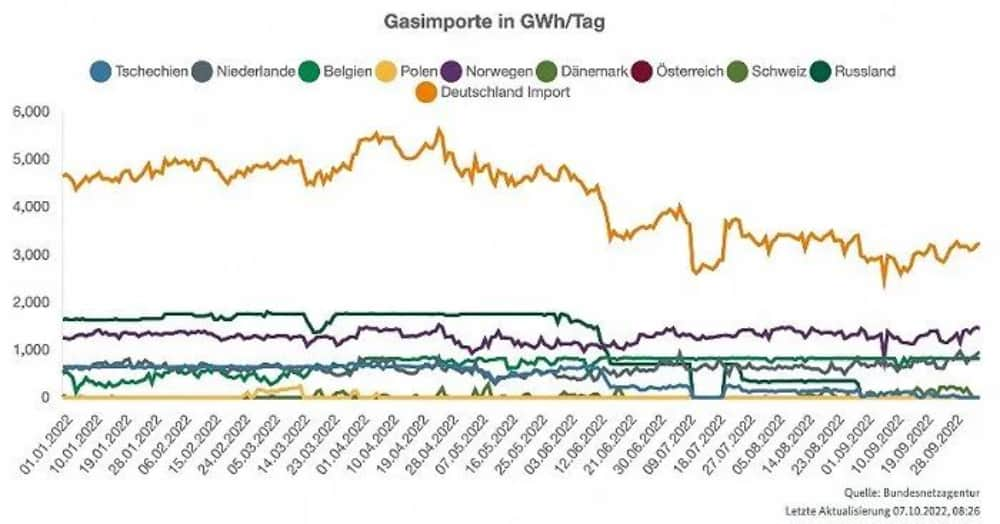
Germany's daily natural gas import volume is still unable to recover to the level before Beixi No.1 gas cutoff.



































